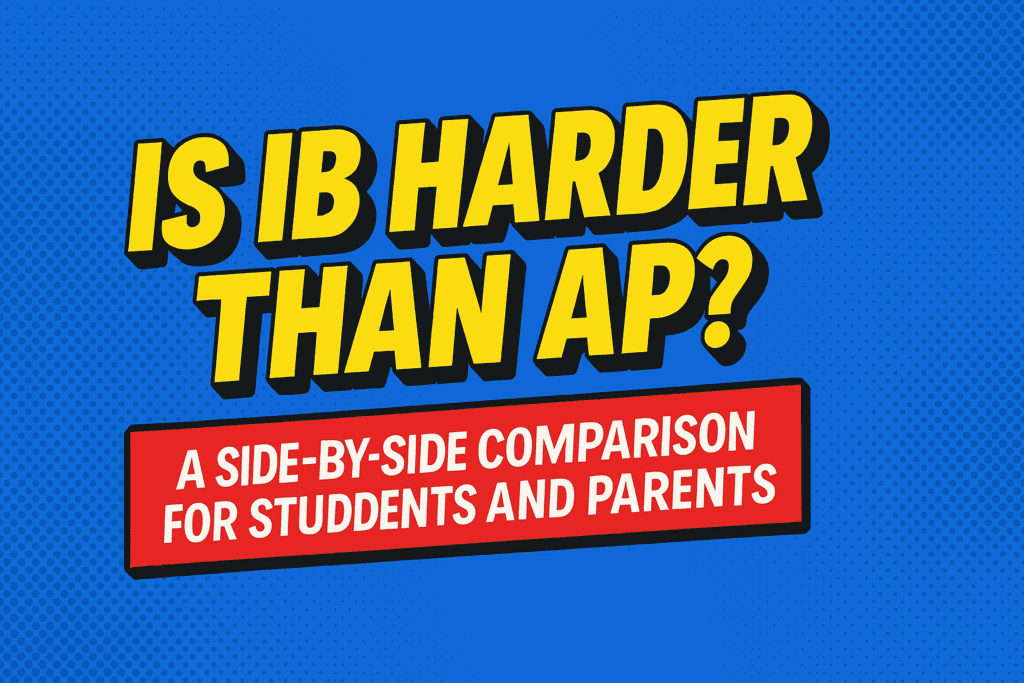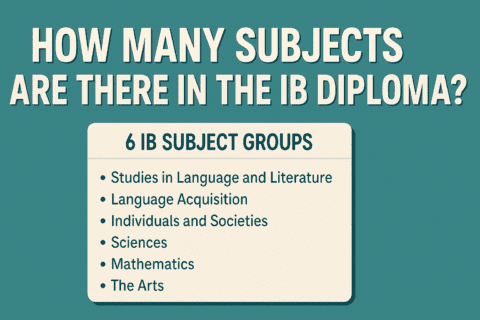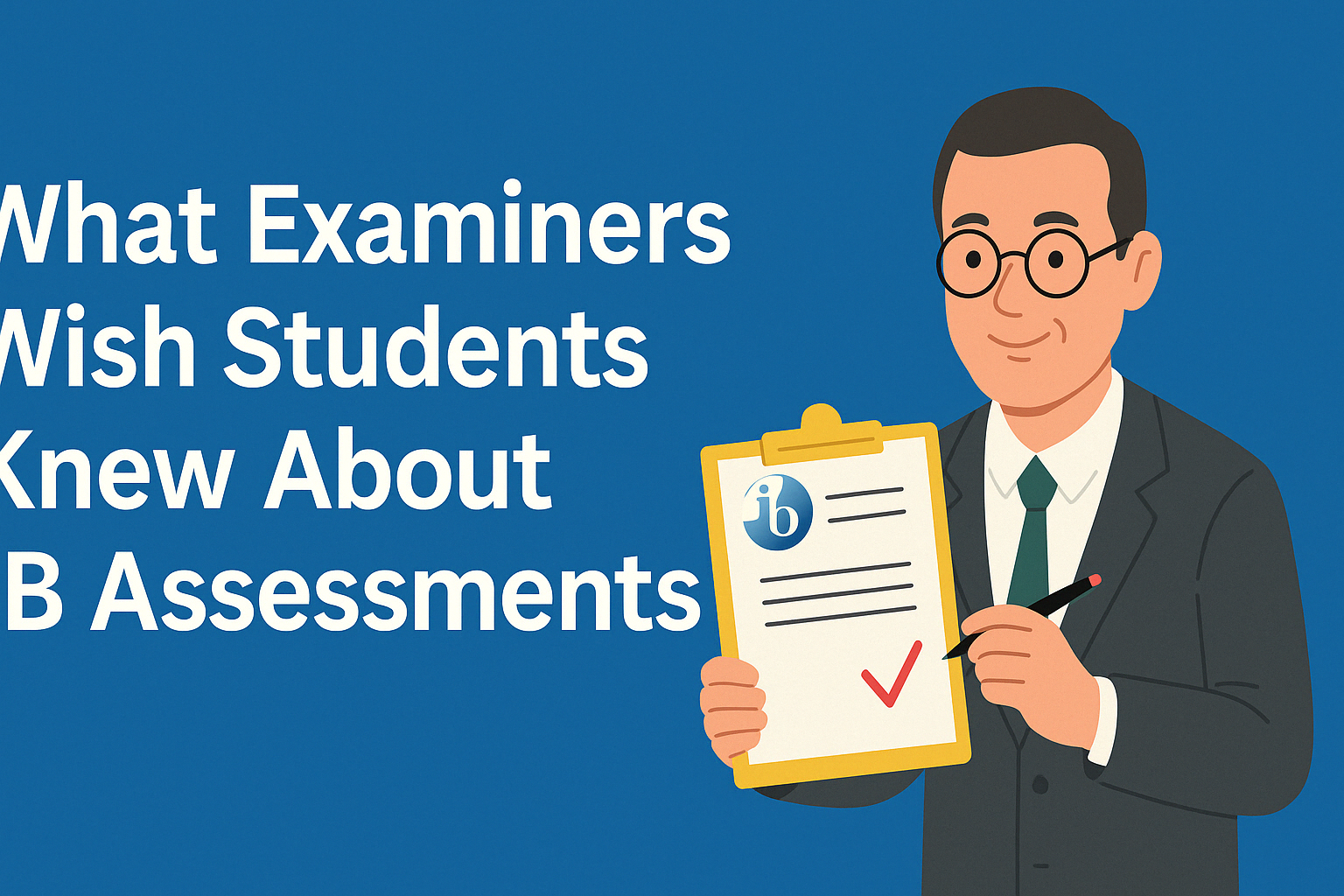Introduction
Choosing between IB and AP is like picking between two academic powerhouses—each with its own pros, cons, and pressure points. It’s a common dilemma faced by high school students, parents, and academic counselors alike. Whether you’re eyeing top-tier colleges or seeking the most enriching academic experience, understanding the nuances of IB vs AP is essential.
This blog dives into a comprehensive comparison of the International Baccalaureate (IB) and Advanced Placement (AP) programs, examining curriculum, workload, assessments, and their impact on college admissions.
Overview of IB and AP Programs
What is the IB Diploma Programme?
The International Baccalaureate (IB) Diploma Programme is a two-year, globally recognized educational curriculum for students aged 16-19. Known for its holistic approach, the IB emphasizes intellectual, personal, emotional, and social growth. Core components include:
Theory of Knowledge (TOK)
Extended Essay (EE)
Creativity, Activity, Service (CAS)
Six subject groups: Language & Literature, Language Acquisition, Individuals & Societies, Sciences, Mathematics, and the Arts
What is the Advanced Placement (AP) Program?
Administered by the College Board, the AP Program offers college-level courses and exams to high school students primarily in the U.S. Students can choose from over 38 AP subjects. It provides flexibility to take courses à la carte and earn college credits based on exam performance.
Key Differences Between IB and AP
Curriculum Structure
IB: Offers a comprehensive and interconnected curriculum. All students follow a fixed program that includes core components (CAS, TOK, EE) alongside subject-specific courses.
AP: Subject-specific and modular. Students select individual courses based on interest and school availability.
Assessment Style
IB:
Internal assessments
External examinations
Research papers, oral presentations, science labs
AP:
Primarily based on standardized, end-of-year exams
Some subjects may include coursework, but less emphasis on internal assessment
Rigor and Workload
IB:
Approximately 15–20 hours/week of academic work outside class
Emphasis on time management, independent research, and interdisciplinary thinking
AP:
Varies by course; some are as demanding as college-level classes, others are more manageable
Focuses more on subject mastery than holistic development
Which Is More Difficult?
Determining whether IB is harder than AP depends on a student’s learning style, academic strengths, and goals.
IB may feel more intense due to its structured, all-encompassing curriculum and constant assessments.
AP offers flexibility but can be equally rigorous depending on the number of courses taken.
“IB felt like a marathon, while AP was more like a series of sprints,” says Riya, a former dual student who completed both programs.
IB vs AP for College Admissions
How Ivy League & Top Universities View IB vs AP
Ivy League and other competitive colleges value both programs for their academic rigor.
IB students may stand out for their interdisciplinary skills, research ability (via Extended Essay), and global perspective.
AP students may have an advantage in demonstrating subject mastery and accumulating college credit.
According to bestcolleges.com, many institutions accept both IB and AP credits but may give extra weight to the full IB Diploma.
For example:
Harvard and Princeton recognize the IB Diploma as excellent college preparation.
Stanford accepts AP credits for placement but does not guarantee advanced standing.
IB vs AP: Pros and Cons Table
| Feature | IB Program | AP Program |
|---|---|---|
| Flexibility | Fixed structure, mandatory components | Choose subjects freely |
| Recognition | Globally recognized | Widely accepted in the U.S. |
| Workload | High, ongoing assessments | Varies by subject, exam-based |
| College Prep | Strong for critical thinking | Strong for subject mastery |
Which Should You Choose?
Ideal Student Profiles
Choose IB if:
You thrive in structured environments
You enjoy cross-disciplinary learning
You’re applying to international universities
You value research, critical thinking, and global perspectives
Choose AP if:
You prefer flexibility in subject choice
You want to focus on specific academic strengths
You’re aiming for U.S.-based universities
You wish to earn college credit for specific subjects
Regional Considerations
U.S. Colleges: Both IB and AP are well-regarded. AP may offer easier college credit transfer.
UK Universities: Prefer IB due to its similarity to A-Levels in rigor.
Canada & International: IB often has broader acceptance and recognition.
Frequently Asked Questions (FAQs)
Is IB better than AP for Ivy League?
Both programs are valued. IB may give an edge for its depth and extended essay, but strong AP scores across multiple subjects can be equally impressive.
Do colleges prefer IB or AP?
It depends on the college. Most look for academic rigor. Some may prefer IB for its global approach; others value AP for its scalability.
Is the IB program really that hard?
Yes, it can be challenging due to its integrated curriculum and extended requirements, but it’s also highly rewarding.
Can you take both IB and AP courses?
Some schools offer both programs. It’s possible to mix and match, though it’s rare to pursue the full IB Diploma and multiple AP exams simultaneously.
Is AP more flexible than IB?
Absolutely. AP allows students to choose specific subjects without mandatory interdisciplinary elements.
Conclusion: Your Academic Journey, Your Choice
Ultimately, whether IB or AP is harder isn’t a one-size-fits-all answer. The best choice depends on your academic style, career aspirations, and university goals. Both pathways offer a strong foundation for college success.




